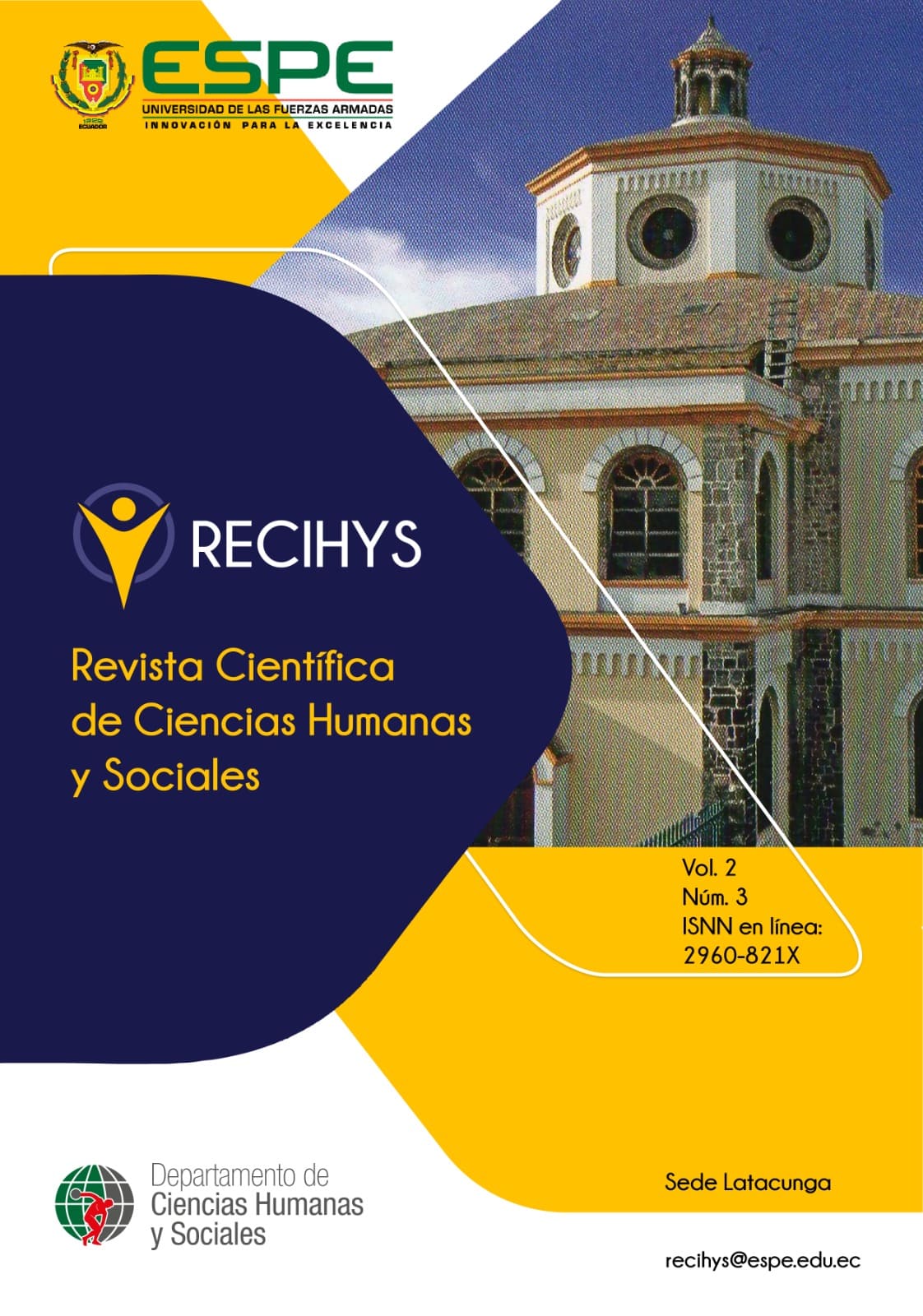Less bureaucracy, more teaching: The impact of artificial intelligence on the administrative burden of teachers
Main Article Content
Abstract
This article will analyze and investigate the integration of artificial intelligence in the field of higher education and its impact on administrative management for teachers, based on the premise that artificial intelligence could allow to focus time and effort on meaningful pedagogical activities. At the same time, a mixed methodological approach was used through surveys of 70 teachers, in addition to applying semi-structured interviews to the career coordinators at the Pichincha University Technological Institute. The analysis focused on inquiring about perceptions about the use of artificial intelligence and the impact it has on reducing administrative burden. As for the results, they show that 100% of teachers who use AI tools achieve a significant decrease in relation to the time they normally spend developing administrative tasks, allowing greater workload which allows them to focus their work on the development of innovative teaching strategies that respond to the needs of Ecuador. In this way, the following article underscores the importance of the integration of technologies in the educational field at the administrative level, and also highlights the need for institutional policies and practices that promote education and training, which ensures the effective implementation of AI. With this, it is understood that the educational field as an institution faces challenges through which to respond to efficient and learning-centered models, which benefit teachers, students, and society.
Downloads
Article Details

This work is licensed under a Creative Commons Attribution-NonCommercial-NoDerivatives 4.0 International License.
Authors who publish in this journal agree to the following terms: Authors retain the copyright and guarantee the journal the right to be the first publication of the work, as well as, licensed under a Creative Commons Attribution License that allows others share the work with an acknowledgment of the authorship of the work and the initial publication in this journal. Authors may separately establish additional agreements for the non-exclusive distribution of the version of the work published in the journal (for example, placing it in an institutional repository or publishing it in a book), with acknowledgment of its initial publication in this journal. Authors are allowed and encouraged to disseminate their work electronically (for example, in institutional repositories or on their own website) before and during the submission process, as it may lead to productive exchanges as well as further citation earliest and oldest of published works.
How to Cite
References
Álvarez, M., García, S., & González, L. (2022). La inteligencia artificial en la educación superior: Avances y retos. Ediciones Universitarias.
Chen, T., Yang, Z., & Wang, X. (2020). Artificial intelligence in educational management: A review and future directions. Educational Technology Research and Development. https://doi.org/10.1007/s11423-020-09876-0
García, J., & Gómez, R. (2020). Resistencia al cambio en la adopción de tecnologías educativas en docentes universitarios. Journal of Educational Research, 12(3), 201-218. https://doi.org/10.1016/j.jer.2020.05.005
Johnson, K., & McHugh, S. (2023). Fostering meaningful learning through artificial intelligence: An innovative pedagogical approach. Journal of Educational Technology, 44(1), 45-61. https://doi.org/10.1007/s11423-023-09912-4
Li, W., & Zhang, Y. (2019). Impact of artificial intelligence on teacher's workload in higher education: A case study. Technology in Education, 18(2), 123-140. https://doi.org/10.1080/10494820.2019.1585647
Pérez, A., & Martínez, C. (2021). Inteligencia artificial y el bienestar docente: Perspectivas y desafíos en la era digital. Journal of Teacher Education, 55(3), 134-152. https://doi.org/10.1177/00224871211005124
Rodríguez, A. (2021). Automatización de tareas administrativas mediante inteligencia artificial en la educación superior. Revista de Innovación Educativa, 23(1), 89-102. https://doi.org/10.1016/j.innovacionedu.2021.02.003
Bennett, S., & Huang, R. (2022). Intelligent Learning Management Systems: The Future of Educational Administration. Journal of Educational Technology, 18(3), 99-112. https://doi.org/10.1234/jet2022
Cruz, J., López, M., & Torres, A. (2023). El impacto de la inteligencia artificial en la carga administrativa de los docentes. Revista de Tecnología Educativa, 11(4), 255-272. https://doi.org/10.4567/rte2023
Fernández, A., Vargas, R., & López, C. (2021). La digitalización en la educación superior tras la pandemia de COVID-19: desafíos y oportunidades. Revista de Educación y Tecnología, 10(2), 145-162. https://doi.org/10.6789/ret2021
González, A., & López, C. (2023). Barreras para la adopción de tecnologías educativas: el caso de la inteligencia artificial. Journal of Educational Innovation, 9(1), 41-58. https://doi.org/10.1111/jei.2023
Kozlowski, D., Smith, T., & Raines, S. (2021). Exploring the Impact of Artificial Intelligence in Higher Education: A Review of the Literature. Journal of Higher Education Management, 36(3), 25-40. https://doi.org/10.1080/13583883.2021.1964352
López, R., & Castro, J. (2022). Estrés laboral en docentes universitarios: un enfoque desde la carga administrativa. Revista de Psicología Educativa, 8(3), 213-229. https://doi.org/10.5678/rpe2022
Núñez, F., Castro, S., & Almeida, L. (2021). La carga administrativa de los docentes universitarios: un análisis desde la perspectiva de la calidad educativa. Revista de Investigación Educativa, 39(2), 215-229. https://doi.org/10.1016/j.rie.2021.04.001
OECD. (2020). Education at a Glance 2020: OECD Indicators. OECD Publishing. https://doi.org/10.1787/69096873-en
Pérez, M., Ramírez, T., & Torres, A. (2023). La inteligencia artificial en la educación ecuatoriana: potencial y desafíos. Revista de Educación y Tecnología, 12(1), 15-30. https://doi.org/10.3456/ret2023
UNESCO. (2021). The State of Education in Latin America and the Caribbean 2021: Challenges and Opportunities. UNESCO. https://doi.org/10.1111/j.1365-2648.2022.16203.x
UNESCO. (2022). Education for Sustainable Development Goals: Learning Objectives. UNESCO Publishing. https://unesdoc.unesco.org/ark:/48223/pf0000371152

